What are the functions of the leather processing enzymes?
Looking for leather enzyme manufacturers? We are an enzyme manufacturer providing high-quality enzyme products at competitive prices.
According to the researchers, certain enzymes, amylases, proteoglycans can break down as effectively as lime. They ended the leather manufacturing process by treating the leather with chemical or vegetable tanning agents and obtained hides that were as soft as those treated with lime. In addition, the enzymatic tanning process using commercially available amylases is said to be as expensive as the purely chemical process.
More Info about the Leather Processing Enzymes
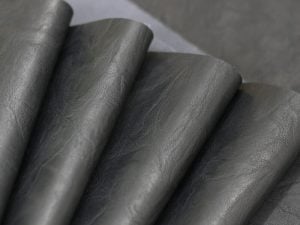
Indian women and Eskimo women have chewed the edges of sealskins softly since ancient times to make the leather easier to sew. Now Indian researchers have discovered that enzymes, such as those found in saliva, also help in industrial tanning. They can replace an important chemical step and make the entire process much more environmentally friendly at similar costs.
Indian researchers use biological catalysts to turn animal skins into leather. The “green” catalysts correspond to the enzymes in saliva and are said to halve the environmentally harmful effects during the tanning process. As the trade magazine Nature reported, leather manufacturers have improved the process, but certain steps such as “liming”, where the addition of lime and sulphur compounds loosens the hair from the hide, or “pickling” and “pickling”, where the hide is prepared for tanning with acid and salt, are still considered toxic.
Dipping the animal skins in heavy sulphur compounds produces fermentation gases and lime leaves behind toxic sludge. In some parts of the world, enzymes are already being used as an alternative for hair removal. The Central Leather Research Institute in Chennai discovered that the enzymes are a substitute for lime in the bating process. The pickling initiates a further decomposition of the skin by enzymes in order to break down the fibre structure more for the subsequent tanning process. By pickling the skin is made more elastic and voluminous as protein-carbon combinations (proteoglycans) break up and only collagen fibres remain.
-
Product on sale
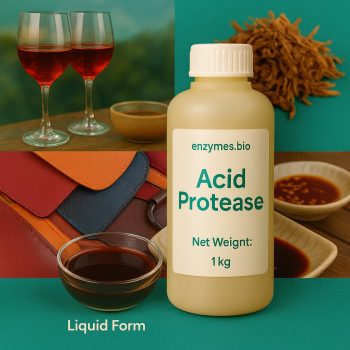 Acid Protease – Food GradeOriginal price was: $105.55.$94.99Current price is: $94.99.
Acid Protease – Food GradeOriginal price was: $105.55.$94.99Current price is: $94.99. -
Product on sale
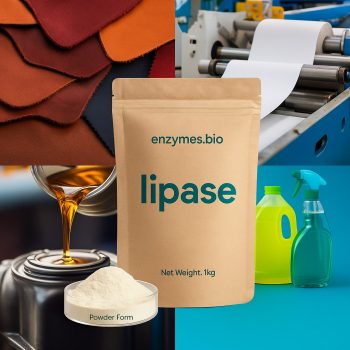 Industrial Lipase Enzyme – Multi-Purpose Biocatalyst for Fat and Oil HydrolysisOriginal price was: $148.88.$133.99Current price is: $133.99.
Industrial Lipase Enzyme – Multi-Purpose Biocatalyst for Fat and Oil HydrolysisOriginal price was: $148.88.$133.99Current price is: $133.99. -
Product on sale
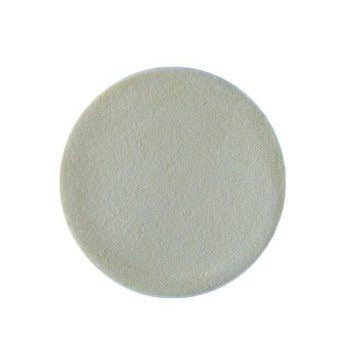 Leather Cleaning Enzyme Stain RemoverOriginal price was: $91.00.$81.99Current price is: $81.99.
Leather Cleaning Enzyme Stain RemoverOriginal price was: $91.00.$81.99Current price is: $81.99. -
Product on sale
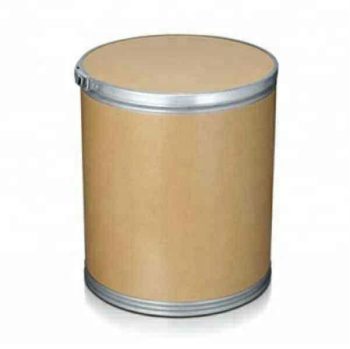 Alkaline Endo-proteases For Leather IndustryOriginal price was: $91.00.$81.99Current price is: $81.99.
Alkaline Endo-proteases For Leather IndustryOriginal price was: $91.00.$81.99Current price is: $81.99. -
Product on sale
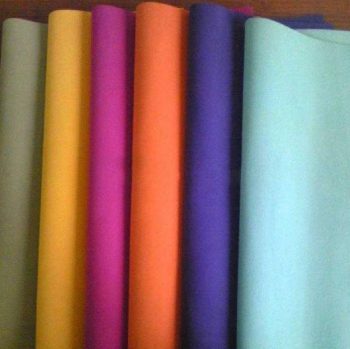 Leather Processing Enzyme: Trypsin Leather SoftenerOriginal price was: $86.00.$77.99Current price is: $77.99.
Leather Processing Enzyme: Trypsin Leather SoftenerOriginal price was: $86.00.$77.99Current price is: $77.99. -
Product on sale
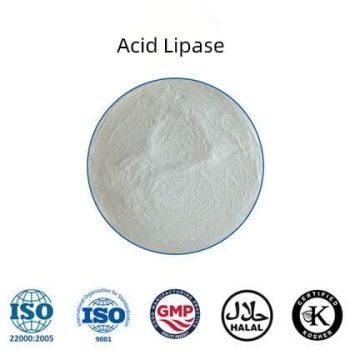 Acid Lipase For Leather Degreasing ProcessOriginal price was: $87.00.$78.99Current price is: $78.99.
Acid Lipase For Leather Degreasing ProcessOriginal price was: $87.00.$78.99Current price is: $78.99. -
Product on sale
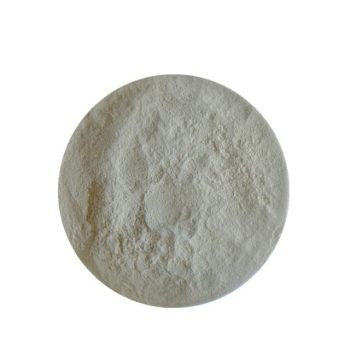 Leather Tanning Enzymes: Acid Protease Enzyme CAS 9040-76-0Original price was: $115.00.$103.99Current price is: $103.99.
Leather Tanning Enzymes: Acid Protease Enzyme CAS 9040-76-0Original price was: $115.00.$103.99Current price is: $103.99.